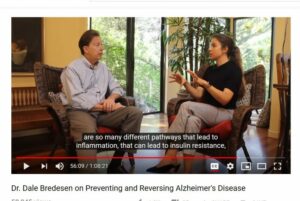| This is a recent post from Rhonda Patrick on the importance of getting enough Omega 3 Fatty Acids.
Omega 3 fatty acids  s help to decrease inflammation which can be linked to aging in general. Why? If you look at the graphic below it gives clues, but according to the science and to Patrick in general “Along with their anti-inflammatory effects, omega-3s improve brain structure and function, modulate immune responses, enhance mitochondrial function, and strengthen the membranes in our nervous system. It’s unlikely that just one of these explains why dietary omega-3s slow aging. “ s help to decrease inflammation which can be linked to aging in general. Why? If you look at the graphic below it gives clues, but according to the science and to Patrick in general “Along with their anti-inflammatory effects, omega-3s improve brain structure and function, modulate immune responses, enhance mitochondrial function, and strengthen the membranes in our nervous system. It’s unlikely that just one of these explains why dietary omega-3s slow aging. “
Around 80% of the world and 90% of people in the United States don’t consume enough omega-3 fatty acids. That’s a problem.
Low omega-3 levels are associated with a 5-year decrease in life expectancy. Even more startling is the fact that having a low omega-3 index carries the same mortality risk as smoking!
Omega-3 fatty acids are essential fats that play critical roles in neurodevelopment, cognitive function, immune response, inflammation control, cardiovascular health, cancer prevention, and as we’ll discuss to day, healthy aging.
She’s convinced that omega-3 supplementation is foundational for long-term health—it’s why she developed the Omega-3 Supplementation Guide.
The take home message was that you need to take 1 g per day
- Women benefit more than men
2. People over 60 get the most benefit
3. People with high blood pressure get more benefit than people without high blood pressure.
Rhonda Patrick’s website is Found My Fitness
The formulation I take is DoNotAge a 30 day supply sells for $33.
Omega-3’s and “inflammaging”
One reason that omega-3s are so beneficial is that they quell chronic low-grade inflammation—a process that contributes to several of the hallmarks of aging.
“Inflammaging” is a real culprit and omega-3s can help to slow its progression or stop it altogether. This might be due to omega-3-derived bioactive molecules called specialized pro-resolving mediators or SPMs, which exert beneficial effects on vascular and systemic inflammation.
|





